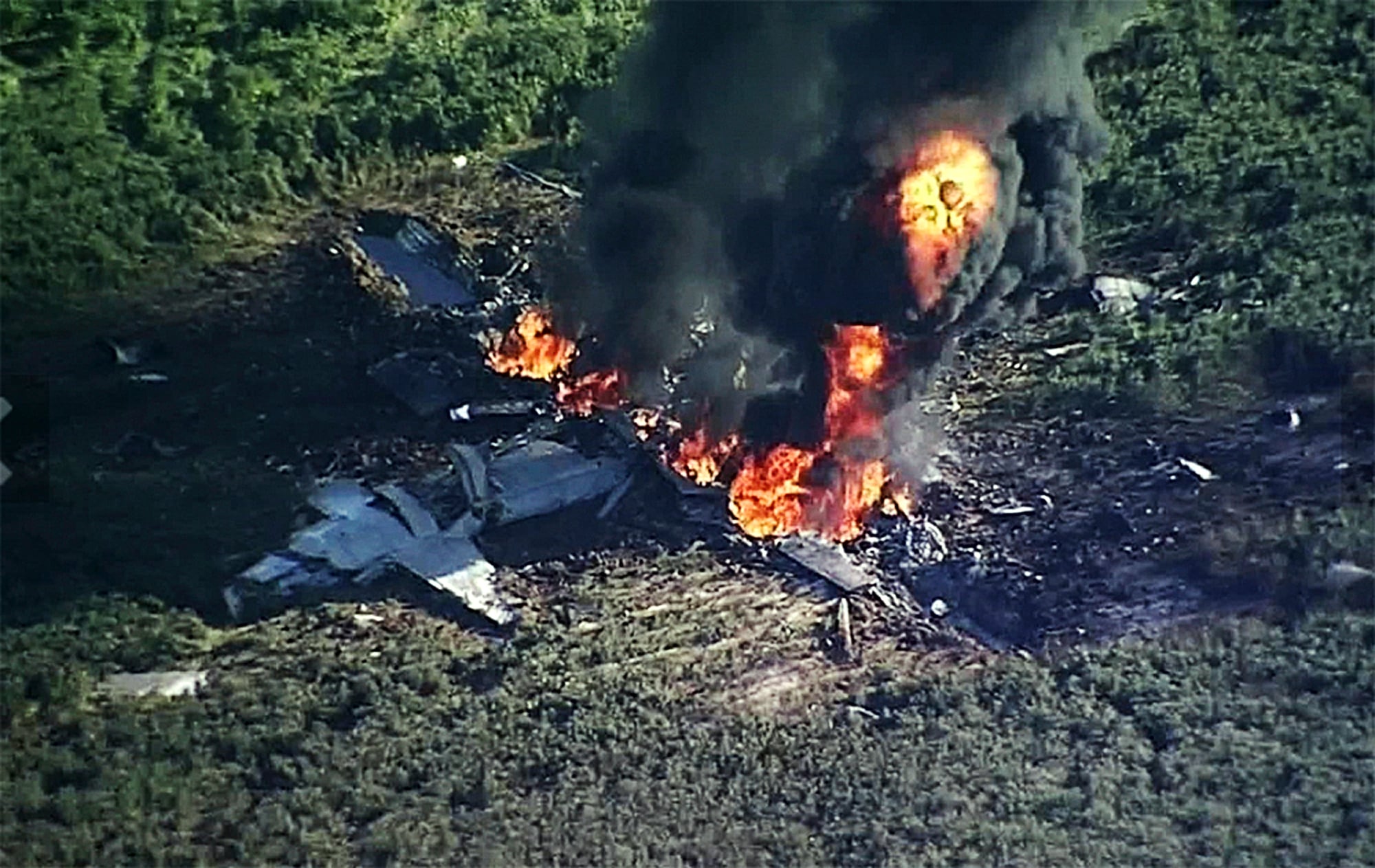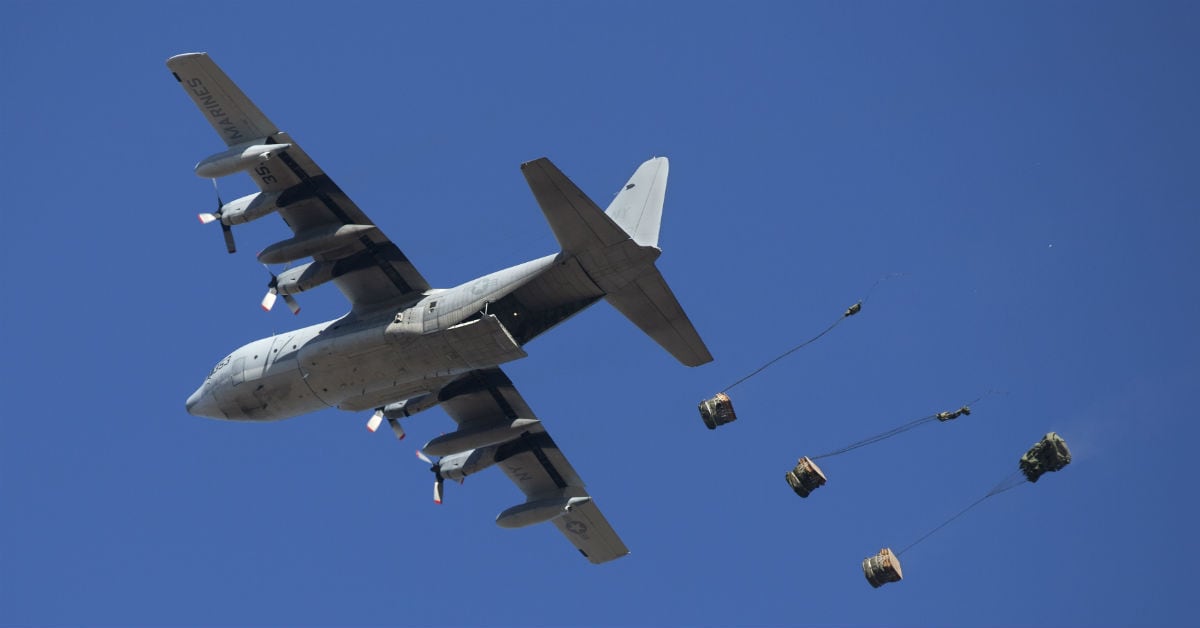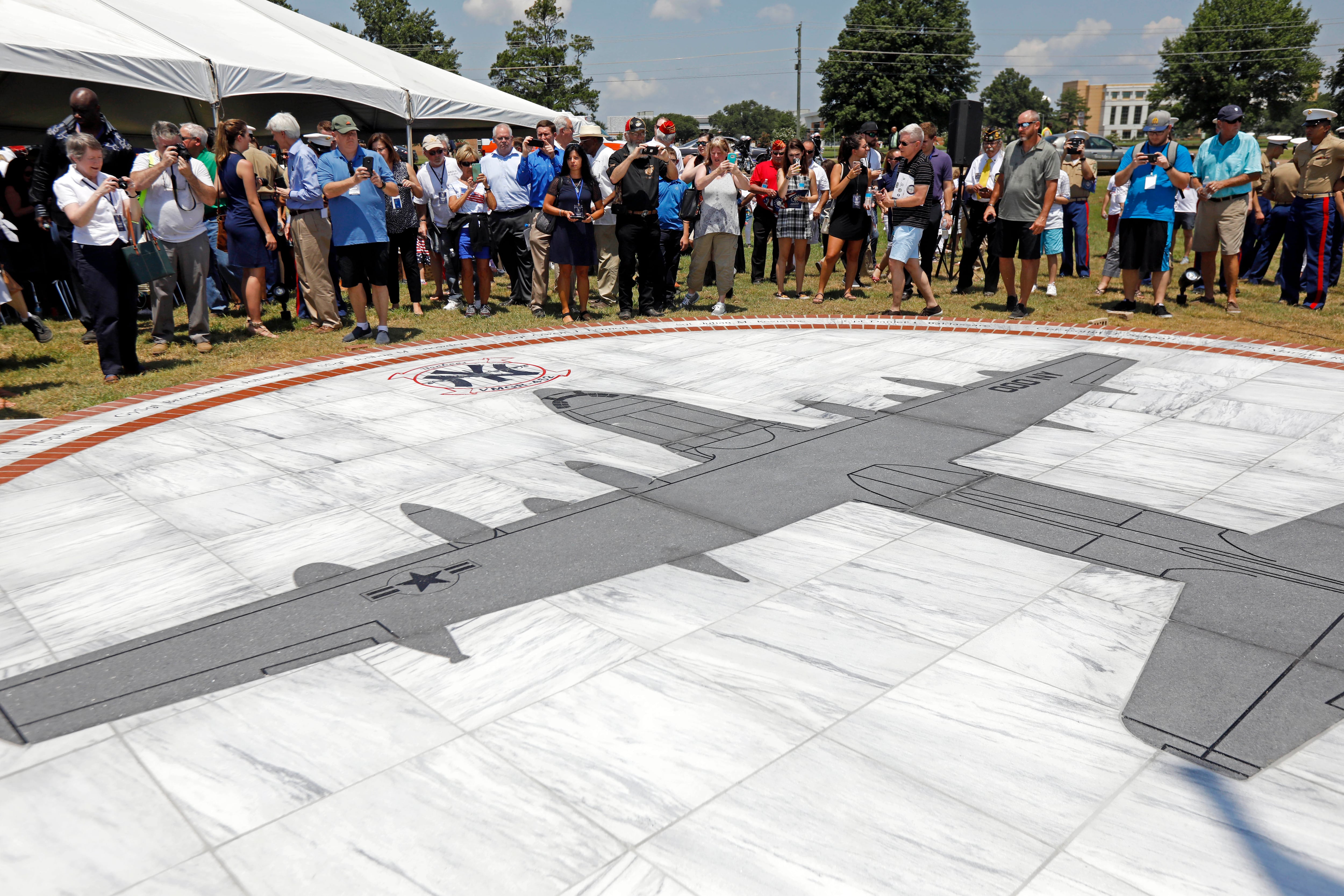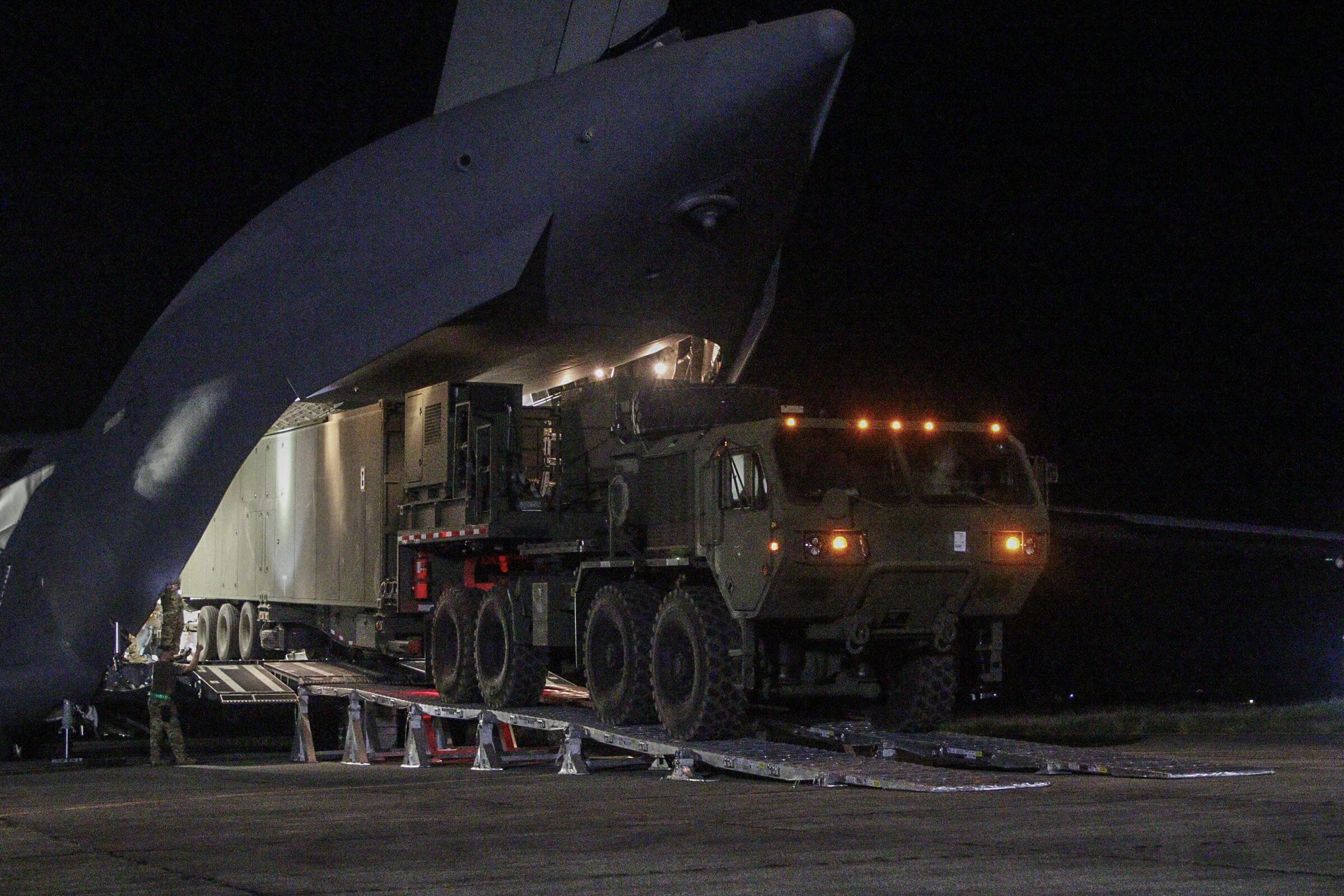A former United States Air Force engineer was charged for making false statements and obstructing justice during a criminal investigation into a 2017 Marine Corps Reserve plane crash that killed 15 Marines and one Navy corpsman.
James Michael Fisher, 67, was a propulsion engineer at Warner Robins Logistic Center in Georgia, a facility in charge of maintenance and repairs for propellers used in the Marine Corps KC-130 transport aircraft that crashed, according to a Department of Justice press release. He was arrested July 2.
On July 10, 2017, a Marine Corps KC-130 transport plane, with the callsign “Yanky 72,” crashed near Itta Bena, Mississippi, after a faulty propeller blade flew off the plane midflight, an investigation into the incident later discovered. The routine transport mission from North Carolina to California tragically ended with the blade smashing into the aircraft’s side, separating the aircraft into three pieces and killing everyone onboard.
Fisher “engaged in a pattern of conduct intended to avoid scrutiny for his past engineering decisions related to why the crash may have occurred,” the Department of Justice press release said. The indictment alleges he concealed key engineering documents and “made materially false statements to criminal investigators about his past engineering decisions.”
The Northern District of Mississippi United States District Court charged Fisher with destruction or falsification of records in a federal investigation; tampering with a witness, victim, or informant; and making false statements, according to court documents.
RELATED

Fisher faces a maximum of 20 years in prison if convicted. He was ordered to appear again in the Northern District of Mississippi United States District Court on July 10, according to court documents.
The Air Force Office of Special Investigations, Defense Criminal Investigative Service and Naval Criminal Investigative Service are investigating, according to the Department of Justice.
The Marine Corps declined to comment to Marine Corps Times.
Walter Robins Air Force Base and the Air Force also declined to comment, directing questions about the investigation to the U.S. Attorney’s Office for the Northern District of Mississippi.
RELATED

A 2018 Marine Corps investigation into the KC-130T crash said the tragedy resulted from a corroded propeller blade that Navy and Air Force officials failed to detect and fix prior to installation in the aircraft.
The report highlighted the massive oversight of both the Air Force and Navy, including an Air Force policy to toss maintenance records after two years that made accountability for the tragedy difficult.
The report also said the practice of shipping out deteriorating blades to the Navy and Marine Corps wasn’t a one-off and went on for years.
The crash led to the grounding of Marine Corps Forces Reserve KC-130T aircraft and the Navy’s C-130 fleet.
Riley Ceder is a reporter at Military Times, where he covers breaking news, criminal justice, investigations, and cyber. He previously worked as an investigative practicum student at The Washington Post, where he contributed to the Abused by the Badge investigation.





